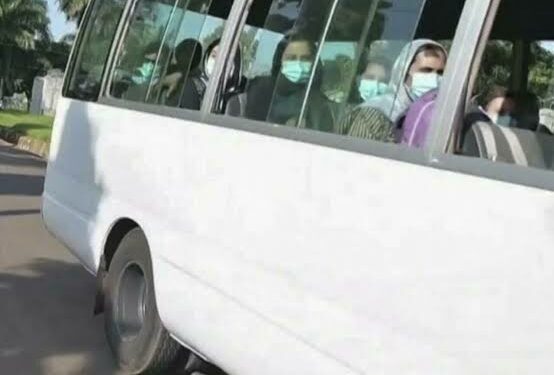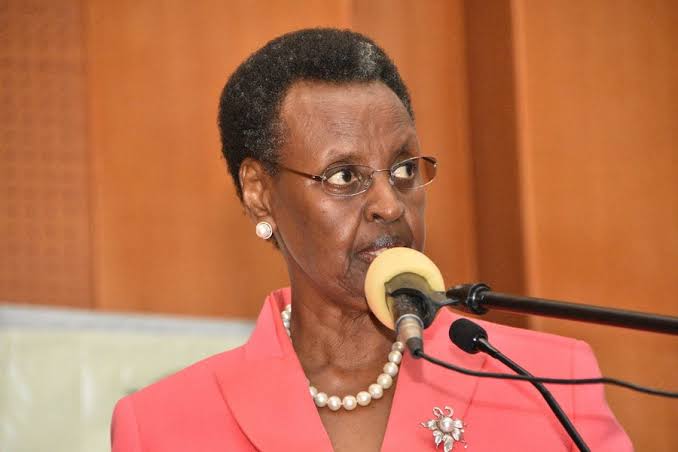Currently there’s a tragic political theatre on display in Afghanistan triggered by imperial America where it decided to abandon a war it started, literally demonstrating total defeat at the hands of the people it tried to quash for about 20 years, the “incredible Talibans”.
In all this frantic circus, thousands of people are scrambling to run out of the country as a way to escape the anticipated wrath of the Talibans, with some attempting to fly out hanging on planes going out. In a sudden flash of time, Afghanistan is seeing an immeasurable out-flux of its people seeking refuge in other countries.
With this exodus of people, being majorly chauffeured by American and European planes, a new wave of political or Taliban-phobia refugees has emerged and America specifically is demanding from several countries to keep these refugees on their behalf, at this point momentarily.
One of the countries which have been contacted to host these America-generated refugees is; Uganda!The United States government communicated (others claiming that it actually dictated) to the Uganda government that it should take in 2,000 Afghan refugees as it tries to process these people later on into it’s own country. The immediate question on everyone’s mind in Uganda and elsewhere has been, “Why Uganda, despite the bad economic shape the country is in and the overwhelming burden of the already existing 1.4 million refugees it’s hosting?”
If anyone knows the people who run the Uganda government, it’s apparent that they never do anything voluntarily that doesn’t help them to preserve power or gain more money. Shortly afterwards we were hearing that Biden had allocated $500 million in additional funds for relocating Afghan refugees, including applicants for Special Immigrant Visas (SIVs). The movement of refugees or migrant asylum seekers is a hot cake business for both people in governments, refugee non-governmental agencies and private mercantile individuals. The way war is business, same is with refugees.
The Italian Case: How refugees are a good business-basket.
————————————————–
If you want to understand how the world of immigration and refugees can be criminally abused by nefarious people and mafiaso governments, just get a snippet on what happens in Italy. Very soon Uganda is on the way of becoming the Italy of Africa.
Italy suffers the highest number of immigrant entries, from majorly North & West Africa plus the middle East, than any other European Union state by the virtue of it’s sea boarder location as a mouth point into Europe. Over 10% of the population, thus over 6 million people, are immigrants and over 600,000 of those are illegal immigrants who get into the country in dubious ways.
Italy has a funding system for immigrants that get into it’s country. It has designated points called reception centres where those immigrants are sheltered and along the way processed from.
The government allocates majority of money to the Ministry of the Interior, which then funds the reception centres through public contracts offered through its regional offices, the prefectures. The going rate is: 35 euros ($41.3) per adult per day, and 45 euros ($53.1) per minor per day.
The primary reception centres are largely run by private cooperatives — consortia of owners operating on a for-profit model, although the money is public,— turning humanitarian response into what many call the “migration business.”
The way this got known as a business scheme is that, one cooperative owner got imprisoned for corruption and claimed to have made over 50 million euros ($59 million) from the operation.
In recent years, reception center administrators throughout Italy have been investigated for fraud, misuse of public funds, granting jobs and economic benefits in exchange for political favors and votes, and making inflated claims about the number of residents so as to receive more of the per diem rate. One investigation in the southern region of Calabria revealed an embezzlement scheme in which 36 million euros ($42.5 million) was siphoned off from a total of 102 million euros ($120.3 million) of public money provided over a decade.
Evemtually, most of these end up as casual workers both in the formal and informal sector, getting exploited by criminal gangs, prostitution cartels and human trafficking to various destinations around Europe. Very few get formal citizenship in the country.
Uganda: The darling of refugees –the statistics.
——————————-
The country hosts 1,494,505 refugees as of 1 June 2021, with nearly 95% of refugees living in settlements primarily in the West Nile and Southwest regions of Uganda.
South Sudan: 1,081,903
DRC: 224,748
Burundi: 42,356
Somalia: 34,963
Rwanda: 15,031
Others: 22,763
Since the escalation of the civil war in South Sudan in July 2016 and the declaration of famine in February 2017, Uganda has become the largest recipient of fleeing migrants in Africa, with the total daily new arrivals of refugees averaging nearly 3,000 in March 2017.
In less than a year, the refugee population in Uganda doubled from less than a million to over 1.4 million, 80% being women and children.
With this crisis, the UN Secretary General António Guterres visited Uganda to co-host the Solidarity Summit on Refugees with the aim to raise US$ 2 billion a year for the next four years to meet refugee needs all over the world.
The way the refugees in uganda are maintained is that the UNHCR and other refugee-enterprise agencies provide cash transfers of between Ugx 35,000 to 50,000 per person every month, on top of in-kind support arrangements like accommodation, government free land for settlement and so on.
The UNHCR in laison with the World food programme keeps availing food-basket rations to the settlement-camps of which, each consists of the following items and quantities: 7.56kg of maize grain, 1.8kg of beans, 0.54kg of vegetable oil and 0.09kg of salt per person per month.
The quantities represent 60% of the normal WFP GFA basket as a result of ration cuts that were implemented starting February 2021.
Uganda’s policy on refugees.
———————————————–
1. Provision of land for economic activity:
————-
Ever since the Nakivale settlement, Africa’s oldest refugeecamp, opened in 1958, Uganda has provided refugees withplots of land in rural settlements, allowing them to engagein subsistence farming.
This is one of the political flash-point grounds against which many indigenous people find the government profligate reception of refugees very repugnant. Eventually as the refugees have taken longer in the country, they have become naturalized and the land on which they got settled on taken as their own, pitting themselves against the locals.
It’s from such arrangments that the local people find their land suddenly no longer theirs when someone who yesterday was a foreigner claiming it as his or hers. The natives feel like the country has been taken over by refugees, to the point that they even suspect that the politicians running the current government were originally refugees who have instead turned the country into their imported subjugative agenda.
The meagre positive development of this policy has majorly been economic, with some vibrant and entrepreneurial markets emerging in many of the main refugee settlements in the south-west, notably in the Nakivale, Kyangwali, and Kyaka II settlements.
2. Freedom of movement:
——————————————-
Refugees who wish to live in cities like Kampala are able to do so, provided that they give up access to nearly all government assistance.
One of the causes of slumization in Kampala city and other major towns is due to this policy, where people without any roots or ancestoral relations in the country start squeezing themselves in the urban spaces of the country, thus culminating into the congestion and chaos that unplanned urban growth causes.
Actually Uganda’s urban population pressure per land acreage capita could have been avoided if this policy of letting wandering foreigners move anywhere they desire was never begun.
3. Right to work and reside anywhere.
——————–
Uganda’s approach was formalized in policy through the Self-Reliance Strategy (SRS), established with donor support in 1999. The right to work and to choose a place of residence were incorporated into law in the 2006 Refugee Act.
Most recently, the Refugee and Host Population Empowerment (ReHoPE) strategic framework updated the SRS model in 2016, outlining a model to support resilience and self-reliance for both refugees and the host community.
In other words, refugees in Uganda nearly have equal rights as its citizens. They actually enjoy the same freedom of access to government free hospital services, public school education and many population support services.
It’s interesting how many locals feel like the refugees are in a better social and economic standing than them, some even contriving to being labeled as refugees so as to get these status amenities.
The 2017 Uganda refugees Corruption Scandal
———————————
On 27 November 2018, the UN’s Office of Internal Oversight Services produced an internal audit report into the UNHCR’s Uganda operations. Covering the period 1 July 2016 to 31 December 2017, it revealed the agency wasted tens of millions of dollars and critically mismanaged operations. Wastage is just a polite term to mean, “stolen”.
The audit followed allegations made in February 2018 claiming that refugee operations in Uganda were inflating refugee numbers, skimming aid, and trafficking girls and women. The OPM and UNHCR subsequently spent US$11 million on a nationwide biometric verification exercise between March and October.
It counted 1.15 million refugees, not 1.4 million as claimed. The OPM and UNHCR issued a joint statement explaining that verifications often resulted in reductions and that the 2016/17 emergency South Sudanese influx overwhelmed registration systems.
These findings included ‘vast’ overspending on water, trucking and roads, payments to ‘ghost’ civil servants, procurement irregularities and overpayment of VAT costs by US$10 million.
UNHCR representatives, mainly manned by Ugandans who have been clandestinely fixed in there by the ruling government operatives, stockpiled goods meant for refugees including blankets, wheelbarrows, kitchen sets, solar lamps and 30 000 sanitary pads worth over US$10, 000.
The report highlighted inappropriate arrangements between UNHCR and the Ugandan Office of the Prime Minister (OPM), including awarding contracts to questionable entities using government recommendations.
The agency paid US$320 000 – more than twice the stated value – to buy an empty parking lot adjacent to the OPM’s premises that nobody could produce a title for. If you have been in Uganda enough, such mischiefs are not strange to people’s ears. The government people have mastered the game of making money disappear into thin air in it’s trillions of shillings.
What bothers citizens is why foreign governments and organizations keep entrusting the same people with money over and over!
The appropriate way of hosting refugees without generating insecurities amongst nationals
—————————————————
1. Proper documentation at all boarder entry points.
2. Limitation on movement, residence and work rights in the host-country.
3. Forbiddance of any land ownership arrangement.
4. Forbiddance of any political engagements and influence on the country’s affairs.
5. Stretch the choice for citizenship naturalization to at least over 20 years.
6. Let the international refugee organizations bare all the costs in exclusion of the host-country’s resources.
7. Generate a plan to repatriate the refugees to their country of origin.
8. Let a country have a ceiling limitation on the number of refugees it can accommodate in its country.
Do you have a story in your community or an opinion to share with us: Email us at editorial@watchdoguganda.com













